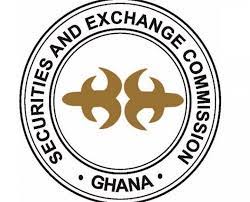By Raymond ABLORH
Ghana stands at a critical juncture in its energy journey. Despite commendable strides in electricity access, the persistent drumbeat of “dumsor” – our infamous load shedding – coupled with escalating tariffs and the ever-present financial woes of the Electricity Company of Ghana (ECG), paints a stark picture of an energy sector teetering on the brink.
We are a nation rich in natural resources, yet we grapple with power insecurity, largely due to an over-reliance on a conventional energy mix dominated by thermal (70%) and hydro (28%).
This precarious balance, where renewable sources barely register at less than 2%, leaves us vulnerable to global market whims and the unpredictable impacts of climate change.
It’s time for a radical shift in our national energy discourse and investment priorities. It’s time for us to unequivocally embrace the sun.
Solar energy, often relegated to the periphery of our grand energy strategies, is not merely another option; it is, without hyperbole, our most viable path to energy security, economic stability, and sustainable development.
Let me offer clear, tangible reasons why the Ghanaian government and our esteemed development partners must elevate solar to the absolute apex of our energy agenda:
Our Untapped Golden Resource: The Abundance of Sunshine
Ghana basks in sunshine for approximately 2,000 hours annually. The Energy Commission of Ghana conservatively estimates our untapped solar potential at over 4,000 MW.
This is not a theoretical projection; it is a verifiable, free, and abundant resource cascading down on our nation every single day. While we lament fuel price hikes and scramble for gas, an inexhaustible clean energy source awaits our strategic harnessing. To ignore this phenomenal natural endowment is akin to starving in a fertile land.
Bolstering National Security and Economic Resilience
Our heavy dependence on imported fossil fuels is a strategic vulnerability. It ties our national budget and the stability of our electricity tariffs to volatile global oil and gas markets. Every fluctuation reverberates through our economy, affecting industries, households, and our overall planning.
By pivoting to solar, we fundamentally reduce this external dependence. We gain greater energy independence, insulate ourselves from international price shocks, and establish a stable, predictable energy landscape vital for sustainable economic growth and resilience.
The Economics of Tomorrow: Cost-Effectiveness and Long-Term Savings
The narrative that solar is “expensive” is rapidly becoming a relic of the past. Global trends unequivocally show a continuous decline in the cost of solar technology and installation. While initial capital outlay is required, the operational costs of solar are negligible, as the “fuel” – sunlight – is free.
This translates directly into significantly lower and more stable electricity bills for businesses and households in the long run. Imagine the freed-up capital for productive investments, the improved affordability for ordinary Ghanaians, and the competitive edge this provides for our industries. This isn’t just about saving money; it’s about reallocating resources for national development.
Bridging the Access Divide: Lighting Up Every Corner of Ghana
The disparity in electricity access, particularly in our northern regions, is a national embarrassment. Extending the traditional national grid to every remote community is often financially prohibitive and logistically nightmarish.
This is where solar offers a revolutionary solution. Decentralized solar mini-grids and off-grid solutions can transform underserved communities, providing reliable power to rural enterprises, schools, and healthcare facilities. This isn’t just about turning on lights; it’s about catalyzing local economies, improving educational outcomes, enhancing public health, and ultimately, closing the developmental gap that plagues too many of our fellow citizens.
A Catalyst for Job Creation and Economic Diversification:
Investing in a robust solar sector is a proven engine for job creation. From the manufacturing and assembly of components to installation, maintenance, research, and development, the solar value chain promises a multitude of employment opportunities.
It fosters skill development, as evidenced by initiatives like the Energy Commission’s Energy Academy, and diversifies our economy away from over-reliance on traditional sectors. This directly translates to poverty reduction, improved livelihoods, and a more resilient, dynamic workforce.
Our Commitment to a Sustainable Future: Climate Action Now:
Ghana, like the rest of the world, faces the existential threat of climate change. Solar energy offers a clean, emission-free alternative to fossil fuels, producing no greenhouse gases during operation.
By making a decisive shift towards solar, we not only clean our air and improve public health but also unequivocally demonstrate our commitment to national and international climate goals. This is about building a healthier, more sustainable environment for generations yet unborn.
Leveraging Existing Frameworks: The Time for Decisive Action is Now:
Crucially, Ghana already possesses the foundational legal and regulatory framework, including the Renewable Energy Act, 2011 (Act 832), and the Renewable Energy Master Plan (REMP) which targets 10% renewable energy penetration by 2030.
We have incentives like Feed-in-Tariffs, net metering, a Renewable Energy Fund, and various tax breaks. What we need now is a decisive, accelerated, and significant increase in attention and investment to fully operationalize these policies and attract the requisite public and private sector participation.
The time for incremental steps and cautious approaches is over. Ghana’s energy future, its economic stability, and its sustainable development hinge on a bold, deliberate, and substantial pivot towards solar energy.
It is not just an opportunity; it is our national salvation. The government and our development partners must act now, with conviction and scale, to unleash the power of the sun for the benefit of all Ghanaians. The stakes are too high to hesitate.
The writer is a Policy, Strategy & Communication expert










